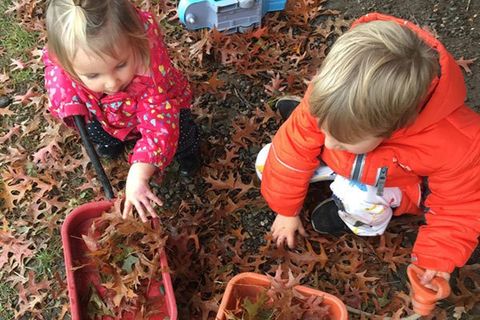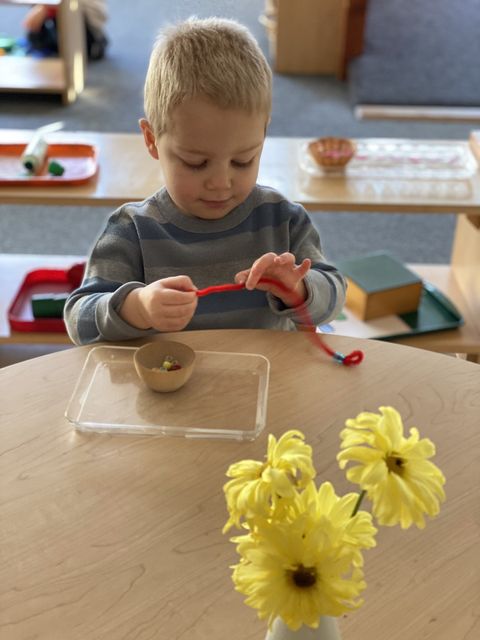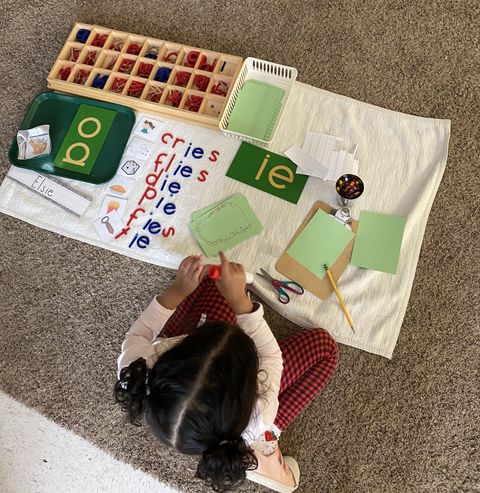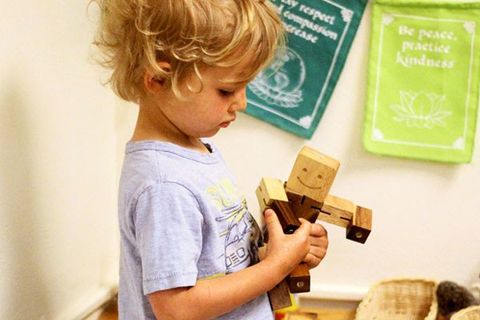What is the Montessori Method?
The Montessori Method
The Montessori Method is an educational approach with a strong philosophical foundation that was developed by Dr. Maria Montessori over 100 years ago. Main educational elements of this approach include a tremendous respect for self and for others, individualized lesson plans, a true focus on peace education, multi-age classes where children support and learn from one another, as well as the opportunity for exploration and discovery. Montessori programs are designed to aid children in their most important work to become independent, thoughtful, well-rounded adults.
The American Montessori Society (AMS) is a non-profit educational society founded in 1960, whose purpose is to help children develop their potential through the educational principles of Dr. Maria Montessori. This includes developing Montessori programs, accrediting schools, granting credentials, encouraging research, organizing seminars and symposia, and promoting all other areas which relate to the dissemination of Montessori philosophy. Our World Montessori is proud to be an AMS member school at step 6 on the Pathway of Continuous School Improvement!
Benefits of Montessori Education.
Every child is celebrated as a unique individual. Montessori education recognizes that children learn in different ways and accommodates all learning styles. Students are free to learn at their own pace, each advancing as he is ready, guided by a Montessori-credentialed teacher and an individualized learning plan.
Intentional classroom design, materials, and daily routines support the student’s emerging “self-regulation” (the ability to educate one’s self, and to think about what one is learning), in toddlers through adolescents.
The multi-age classroom—typically spanning 3 years—re-creates a family structure. Older students enjoy stature as mentors and role models; younger children feel supported and gain confidence about the challenges ahead. Teachers model respect, loving kindness, and a peaceful conflict resolution.
Teachers provide environments where students have the freedom and the tools to pursue answers to their own questions. Internal satisfaction drives the child’s curiosity and interest and results in joyous learning that is sustainable over a lifetime.
Toddlers
Imagine your 18-month-old joyfully picking out his clothing and dressing himself. Your 2-year-old helping her baby sister put on her shoes. This is the power of Montessori at work in the lives of young children.
Dr. Maria Montessori, the Italian educator and scientist who, more than 100 years ago, developed the method of education that bears her name, knew that during the period from birth to age 3, your child’s brain develops more rapidly than at any other time, and more learning takes place than at any other stage of development.
Recognizing the importance of these formative years, the Montessori approach to infant and toddlers supports starting earlier than that. In a Montessori environment, your infant or toddler will be with Montessori-credentialed teachers—loving, nurturing, and rigorously trained in child development—who create peaceful, supportive, and safe environments for our youngest children. In these spaces, a child’s natural passion for wonder, curiosity, exploration, and discovery comes alive.
Early Childhood
Dr. Montessori characterized the 3- to 6-year-old child as possessing an extraordinary capacity, the ability to absorb information from his or her surroundings. Dr. Montessori named this quality “the absorbent mind.” The child from 3 to 6 is a sensorial explorer, soaking up every aspect of the environment, including language and culture. Dr. Montessori recognized the motto of this young child to be “help me to do it myself” Development during this period focuses on learning to be independent.
The corresponding educational environment, then, should support this natural drive, enabling the child to become competent, and therefore confident. The Montessori approach embraces the full development of the youngster, addressing all aspects (physical, social, emotional, cognitive, and spiritual) of the whole child.
Impact of Montessori Education on the Child
Children who have been educated using the Montessori method grow into competent learners who know how to learn and love learning. This solid foundation begun early in life creates self-confident, contributing adults. In Education for a New World, Dr. Montessori states: “…they will be witnesses of the unfolding of the human soul and to the raising of a New Man who will not be the victim of events, but will have the clarity of vision to direct and shape the future of human society.”
Learn more about Dr. Montessori and her methods on the






